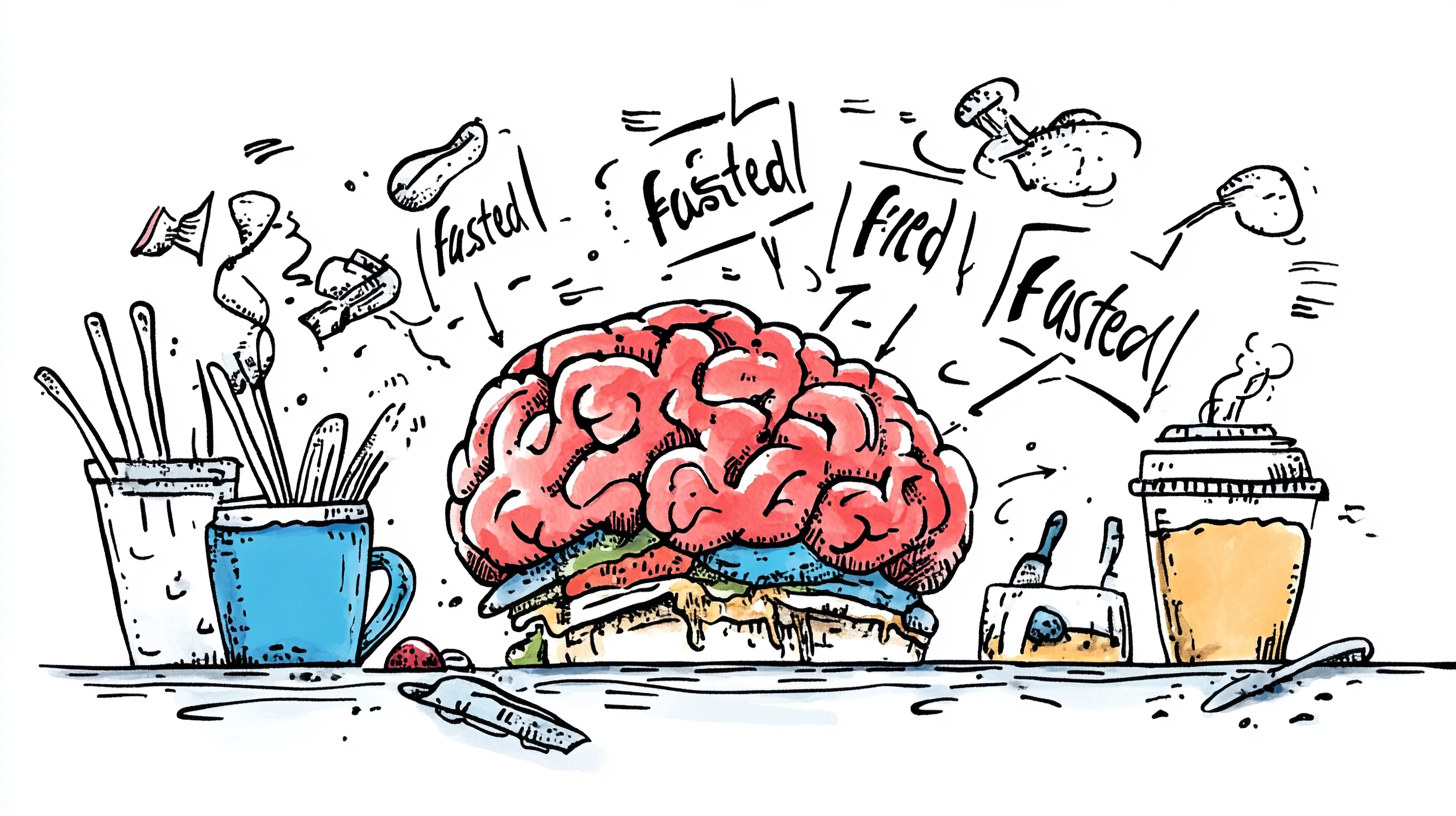Intermittent fasting has gained significant popularity in recent years, not just as a weight loss strategy, but as a potential key to overall health and longevity. But what does science say about this eating pattern? Let’s dive into the fascinating research behind intermittent fasting and explore its effects on our bodies.
What is Intermittent Fasting?
Intermittent fasting involves restricting your food intake for certain periods, which can range from 12 hours to several days. There are various methods, including:
- 16/8 Method: Fasting for 16 hours and eating within an 8-hour window.
- 5:2 Diet: Eating normally for 5 days and restricting calorie intake to 500-600 calories on the other 2 days.
- Eat-Stop-Eat: Fasting for 24 hours once or twice a week.
Historically, humans have practiced fasting for spiritual, therapeutic, and survival purposes. Our bodies are adapted to survive without food for extended periods, and this adaptation has been crucial for our evolution.
The Biological Mechanisms of Fasting
When we fast, our bodies undergo several changes:
- Metabolic Switching: Our primary source of energy shifts from glucose (sugar) to ketones, which are produced by the liver from fat breakdown. This metabolic switch has been linked to improved insulin sensitivity, weight loss, and increased energy.
- Autophagy: Fasting triggers autophagy, a natural process in which our cells recycle and remove damaged or dysfunctional components. This process has been linked to cellular renewal, improved immune function, and reduced inflammation.
- Hormonal Changes: Fasting affects various hormones, including insulin, human growth hormone (HGH), and norepinephrine. These hormonal changes can lead to improved glucose regulation, increased fat burning, and enhanced muscle growth.
Impact on Weight Loss and Metabolism
Intermittent fasting can be an effective weight loss strategy:
- Calorie Restriction: Fasting restricts calorie intake, leading to weight loss.
- Enhanced Fat Burning: Fasting increases fat burning, which can lead to improved body composition.
- Preservation of Lean Muscle Mass: Fasting can help preserve lean muscle mass, which is essential for overall health and metabolism.
Potential Health Benefits
Intermittent fasting has been linked to various health benefits, including:
- Improved Insulin Sensitivity: Fasting can improve insulin sensitivity, reducing the risk of developing type 2 diabetes.
- Cardiovascular Health: Fasting has been linked to improved cardiovascular health, including reduced blood pressure, cholesterol, and triglycerides.
- Brain Health: Fasting may have neuroprotective effects, reducing the risk of neurodegenerative diseases such as Alzheimer’s and Parkinson’s.
- Inflammation Reduction: Fasting has anti-inflammatory effects, which can reduce the risk of chronic diseases.
Longevity and Cellular Aging
Intermittent fasting may have anti-aging effects:
- Sirtuins and Longevity Genes: Fasting activates sirtuins, a family of proteins that promote longevity and cellular health.
- Telomere Preservation: Fasting may help preserve telomeres, the protective caps on our chromosomes that shorten with age.
- Stem Cell Regeneration: Fasting may promote stem cell regeneration, which can lead to improved tissue repair and renewal.
Challenges and Considerations
While intermittent fasting can be beneficial, it’s essential to consider the following:
- Adaptation Period: Fasting can take time to adapt to, and some people may experience side effects such as hunger, fatigue, and headaches.
- Who Should Avoid Fasting: Certain individuals, such as pregnant women, children, and people with a history of eating disorders, should avoid fasting.
- Importance of Nutrient-Dense Foods: Fasting is not a substitute for a healthy diet. Focus on whole, nutrient-dense foods during your eating windows.
In conclusion, intermittent fasting is a powerful tool that can have numerous health benefits. By understanding the science behind fasting, you can make informed decisions about incorporating this practice into your lifestyle. Always consult with a healthcare professional before starting any new diet or fasting regimen.








